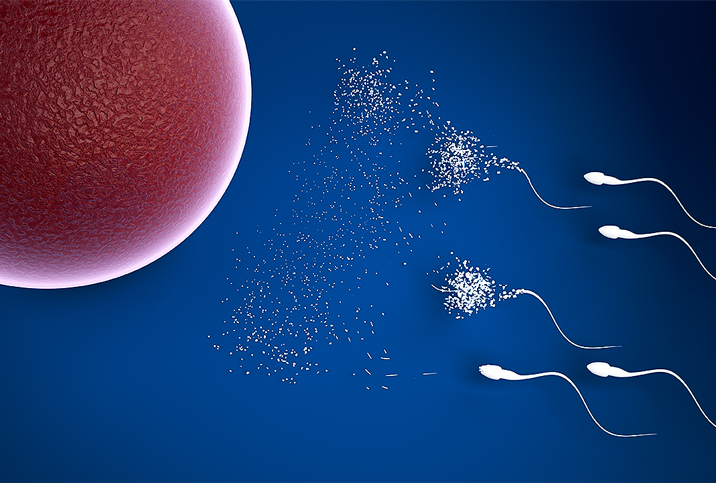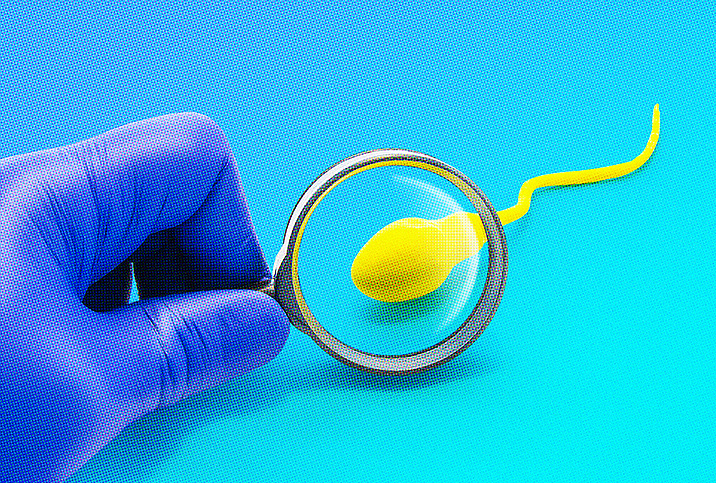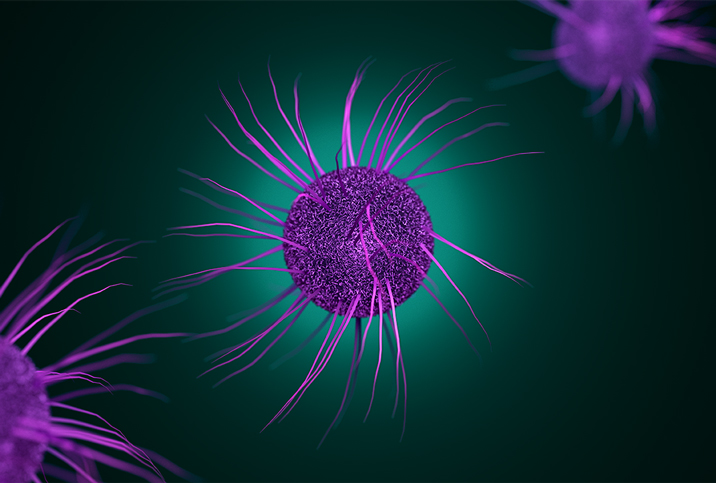Azoospermia Could Be Behind Your Infertility

Low sperm count can be caused by a wide range of factors, including stress, depression and hormone imbalances, among others. When low sperm count leads to difficulty conceiving, your doctor may order several diagnostic tests to identify the root cause of your fertility problems.
If lifestyle behaviors and your partner's health have been ruled out, you may have azoospermia.
What is azoospermia?
Azoospermia is the absence of sperm in male ejaculate. The prevalence of azoospermia is about 1 percent among all men and 10 to 15 percent among those who are infertile, reports the peer-reviewed journal Clinics.
Azoospermia can be either obstructive or nonobstructive. In obstructive cases, there is either a blockage preventing sperm from exiting through the ejaculate or a connection missing somewhere in the reproductive tract preventing sperm from entering the ejaculate. In nonobstructive cases, there may be no sperm due to abnormalities in the testicles.
Potential causes
Causes of azoospermia are mainly dependent on whether the condition is obstructive or nonobstructive.
Potential causes of obstructive azoospermia include:
- Inflammation
- Infection
- Cyst
- Vasectomy
- Trauma or injury to the vas deferens, epididymis or ejaculatory ducts
- Previous surgery in the pelvis
Potential causes of nonobstructive azoospermia include:
- Genetics
- Hormone imbalances
- Problems with the testicles (for example, varicoceles, tumors, testicular torsion or twisting of the testicle)
Signs and symptoms
Azoospermia doesn't always cause symptoms. Some men may not know they have azoospermia until they undergo fertility testing. However, azoospermia is often connected to hormonal issues that may create low sex drive, sexual dysfunction, a lump, swelling or discomfort around the testicles, other symptoms and decreased body hair.
If you think you may have azoospermia, consider whether any of its contributing factors may be involved. For example, if you recently had a vasectomy reversal, your surgery possibly was unsuccessful and your sperm is still being blocked from your ejaculate. If you're also experiencing weight gain, erectile dysfunction and low libido, ask your doctor about hormone testing, as these are all symptoms of hormone imbalances that may be contributing to nonobstructive azoospermia.
Reaching a diagnosis
Diagnosis of azoospermia usually begins with a physical exam. Your doctor may first ask you a series of questions related to your medical history, such as whether you've conceived children or had any sexually transmitted infections (STIs) that may be affecting your ability to conceive. Your doctor will also examine your penis and scrotum for signs of abnormalities and injury.
Your doctor may also perform a semen analysis, check your hormone levels and suggest you undergo genetic testing. Other diagnostic tests for azoospermia include X-rays, ultrasound, MRIs (magnetic resonance imaging) around the scrotum and biopsy of the testes.
Available treatments
Treatments for azoospermia will target its root cause. For example, if you recently had a vasectomy reversal, you may undergo another surgery to have your tubes unblocked or reconstructed to allow for proper sperm flow. If the root cause is hormonal imbalance, your doctor can help you choose treatments that increase and/or balance your testosterone and other hormones.
Other potential treatments for men with azoospermia who want to conceive include in vitro fertilization (IVF) using sperm extracted from the testicles and surgery to open blocked tubes or to repair a varicocele, if present.
If you're having problems conceiving, make an appointment with your doctor. Don't hesitate to tell your doctor if you recently had an illness, injury or medical problem that may be causing azoospermia.


















